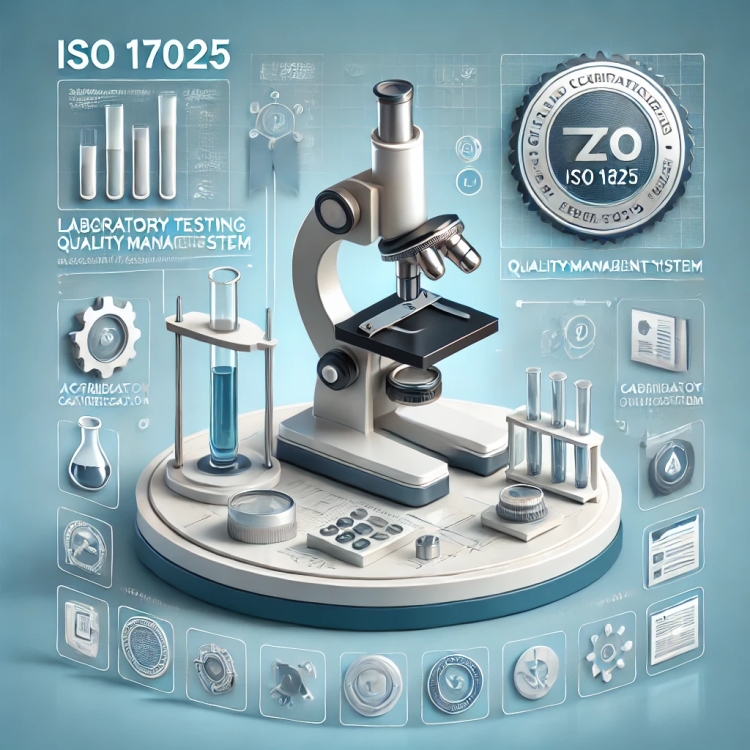What Is ISO 17025 Certification and Why Is It Important for Labs in the USA?
In summary, ISO 17025 certification is crucial for laboratories in the USA, offering a framework to ensure the quality, reliability, and accuracy of testing and calibration services.

ISO 17025 is an international standard that specifies the requirements for the competence of testing and calibration laboratories. It was developed by the International Organization for Standardization (ISO) and is essential for ensuring that laboratories provide reliable and accurate testing and calibration results. In the USA, ISO 17025 Certification in USA is widely recognized as a benchmark for quality and is crucial for laboratories in a variety of industries, including healthcare, manufacturing, environmental testing, and research.
Understanding ISO 17025 Certification
ISO 17025 certification defines the criteria for laboratory management systems, ensuring that the lab operates in a consistent, accurate, and professional manner. It applies to all laboratories, regardless of the size or the field of work. ISO 17025 Services in USA focuses on two key areas:
-
Management Requirements: These include policies for quality management, documentation control, and laboratory procedures. Laboratories are required to establish a robust quality management system to maintain and improve their processes, ensuring consistent results.
-
Technical Requirements: These focus on the competence of personnel, equipment calibration, testing methods, and the handling of test samples. It ensures that labs have the right equipment, facilities, and trained staff to carry out their work with precision and reliability.
To achieve ISO 17025 certification, a laboratory must demonstrate its compliance with both management and technical requirements through audits and assessments. This involves reviewing documentation, equipment calibration, staff qualifications, and adherence to established procedures. Once accredited, the lab is authorized to display the ISO 17025 certification mark, indicating its competence and ability to meet international standards.
Why ISO 17025 Certification Is Important for Labs in the USA
-
Enhanced Credibility and Reputation
ISO 17025 certification is a mark of excellence in the laboratory industry. In the USA, this certification helps laboratories build trust with clients, regulatory agencies, and stakeholders. By demonstrating adherence to global standards, laboratories gain credibility, reassuring customers that their test results are accurate and reliable. Certification also allows laboratories to distinguish themselves from competitors, often becoming the preferred choice for clients seeking high-quality testing services.
-
Improved Accuracy and Consistency
One of the primary reasons labs seek ISO 17025 Consultants in USA is to improve the accuracy and consistency of their results. The technical requirements outlined in the standard ensure that laboratories follow precise procedures, maintain proper calibration of equipment, and utilize appropriate methods for testing and calibration. This leads to more reliable and reproducible results, which are vital for industries where safety, compliance, and performance are critical.
For example, in sectors such as pharmaceuticals, food safety, or environmental monitoring, the integrity of test results is non-negotiable. ISO 17025-certified labs can confidently produce accurate results that meet regulatory standards, which is essential for public safety and quality assurance.
-
Compliance with Regulatory Standards
In the USA, many industries are subject to strict regulatory standards, and laboratories that perform testing or calibration must comply with these regulations. ISO 17025 Consultants Services in USA helps laboratories ensure they meet the requirements of national and international regulations. For instance, the Food and Drug Administration (FDA), Environmental Protection Agency (EPA), and other regulatory bodies often require testing laboratories to demonstrate ISO 17025 compliance.
Certification also supports labs in meeting the requirements of customers and stakeholders who may require proof of compliance with specific standards. It facilitates smoother interactions with regulatory agencies and helps laboratories avoid penalties or legal issues arising from non-compliance.
-
Operational Efficiency and Cost Savings
ISO 17025 Certification Consultants in USA drives laboratories to adopt efficient practices and processes. By implementing the standards, labs improve their internal procedures, leading to streamlined workflows and better resource management. The standard emphasizes the importance of maintaining proper documentation, equipment calibration, and staff training, which helps labs identify inefficiencies and reduce errors.
Additionally, certified labs are less likely to face costly rework, errors, or customer complaints, as the focus on quality control and consistency helps prevent mistakes. Over time, this leads to cost savings and better financial performance.
-
Global Recognition and Market Access
ISO 17025 is recognized worldwide, making it an essential credential for laboratories seeking to operate internationally or collaborate with global clients. For US-based labs, certification opens up opportunities to work with companies and organizations around the world that require certified testing and calibration services. It also enables laboratories to enter international markets more easily, as ISO 17025 certification is often a prerequisite for cross-border transactions and partnerships.
Conclusion
In summary, ISO 17025 certification is crucial for laboratories in the USA, offering a framework to ensure the quality, reliability, and accuracy of testing and calibration services. By adhering to this international standard, laboratories enhance their credibility, improve operational efficiency, and ensure compliance with regulatory requirements. For businesses and industries that rely on precise testing, ISO 17025 certification provides confidence in the results, ultimately driving better decision-making, safety, and performance across sectors.
What's Your Reaction?

















.jpg)
